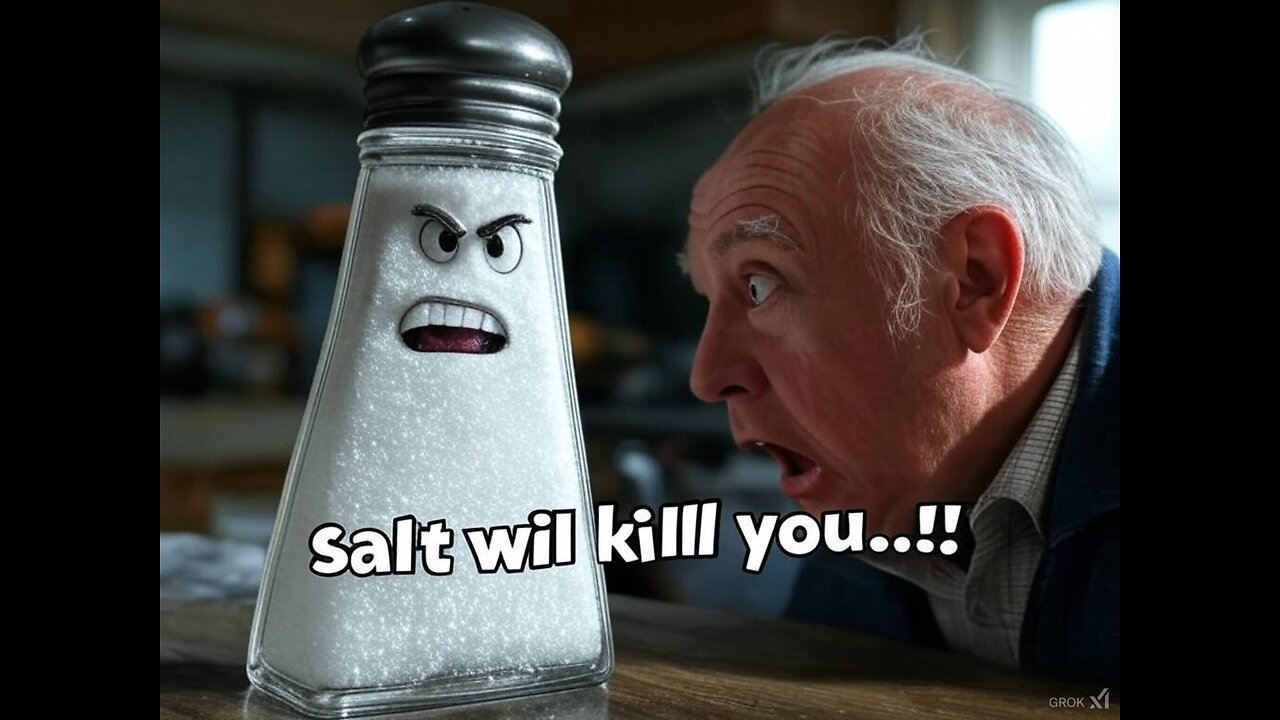Premium Only Content

SALT WiLL KiLL YOU..!! | Ward Dean MD
If your body does not have enough salt to operate, several critical functions can be disrupted:
Electrolyte Imbalance: Sodium is a key electrolyte that helps regulate fluid balance, nerve function, and muscle contractions. A deficiency can lead to an imbalance, affecting these functions.
Hydration Issues: Sodium helps maintain the correct balance of water in and around your cells. Low sodium levels can lead to overhydration of cells, which might result in conditions like hyponatremia.
Muscle Cramps and Weakness: Without adequate sodium, muscles might not function properly, leading to cramps, weakness, or even muscle twitching.
Nervous System Problems: Sodium is crucial for nerve impulse transmission. Low levels can cause confusion, headaches, or in severe cases, seizures.
Blood Pressure: Sodium helps control blood pressure by affecting the fluid volume in the blood vessels. Too little sodium can lead to low blood pressure, which might cause dizziness or fainting.
Fatigue: Since sodium is involved in energy production and muscle function, a lack of it can contribute to general fatigue and lethargy.
Digestive Issues: Sodium aids in the absorption of nutrients in the intestines. Insufficient sodium might impair this process, affecting digestion.
It's important to maintain a balance because while too little salt can be problematic, excessive intake is also harmful, leading to conditions like hypertension.
If you're experiencing symptoms related to low sodium, it's wise to consult with a healthcare provider, especially considering your location in the US where dietary habits and health guidelines can vary.
-
 2:57:33
2:57:33
TimcastIRL
5 hours agoTrump Tariffs Spark Global PANIC, Countries BEG Trump, CAVE To His Demands | Timcast IRL
200K172 -
 1:37:16
1:37:16
Roseanne Barr
7 hours ago $25.08 earnedThe Man Who Saved America | The Roseanne Barr Podcast #93
83.1K46 -
 10:49:37
10:49:37
Dr Disrespect
14 hours ago🔴LIVE - DR DISRESPECT - WARZONE - OG VERDANSK
222K29 -
 16:38
16:38
T-SPLY
10 hours agoDemocrats Are At President Trump For "Liberation Day"
25.3K20 -
 2:53:20
2:53:20
vivafrei
10 hours agoModerating Debate on Syria - Roy Gutman vs. Scott Horton - Regime Change Good or Bad?
168K12 -
 1:04:37
1:04:37
Man in America
10 hours agoCHEMTRAIL WARFARE: Tom Renz Exposes the Military’s SECRET Chemical Attacks on Americans
34.3K22 -
 2:09:33
2:09:33
Precision Rifle Network
1 day agoS4E11 Guns & Grub Live - That's NOT How Any Of This Works
22.2K3 -
 59:19
59:19
AlaskanBallistics
14 hours ago $0.41 earnedI Love this Gun PodCast # 24
15.4K -
 1:40:29
1:40:29
Slightly Offensive
6 hours ago $5.90 earnedWhite Boy MURDERED: What is the REAL REASON Behind BLACK VIOLENCE? | Nightly Offensive
29.6K12 -
![[PT-ENG] Shitzone, we are BACK! Sem armas, sem aim, sem nada!](https://1a-1791.com/video/fww1/64/s8/1/9/c/6/y/9c6yy.0kob-small-PT-ENG-Shitzone-we-are-BACK.jpg) 3:48:39
3:48:39
Farukzzz
7 hours ago[PT-ENG] Shitzone, we are BACK! Sem armas, sem aim, sem nada!
14.2K